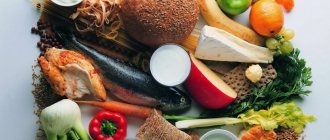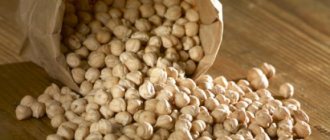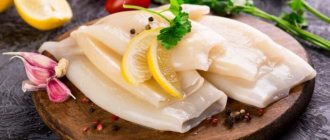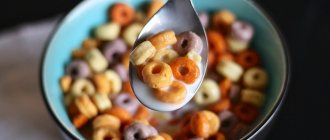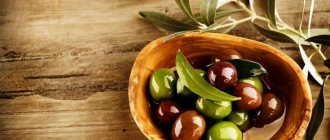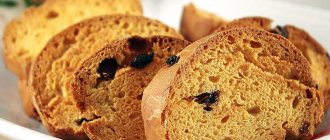General information
To normalize the functioning of the digestive tract with constipation of various etiologies, patients are shown diet No. 3.
Its main principles:
- sufficient fluid intake (at least 2 liters per day);
- gentle food that is well digested;
- exclusion of spicy dishes flavored with a large number of herbs and spices;
- an abundance of plant-based foods high in fiber;
- stimulation of intestinal motor function;
- warm food;
- fractional meals;
- minimizing irritation of the intestinal mucosa;
- exclusion of products that cause gas formation.
Remember, bowel movement is an indicator of human health. The norm for bowel movements is once a day for all ages. It is acceptable for adults to have a bowel movement once every two days, more than that is considered constipation, and the weight of the feces should be 100 - 200 grams. Defecation disorders are a sign of a malfunction of the intestines, which requires an urgent solution to the problem.
Tips for constipation: active lifestyle, getting rid of bad habits, eliminating stress factors, physiotherapy (intestinal massage), twenty-minute pine baths every other day. Regular jogging, swimming, and walking in the fresh air are recommended; cycling is contraindicated.
Diet treatment table No. 4
Dietary nutritional therapy is prescribed for acute intestinal diseases and digestive disorders. The nutrition system is divided into three options, which are determined and prescribed by the doctor. The decision depends on the stage of the disease and the patient’s well-being.
shutterstock.com
The “Table No. 4” diet reduces inflammation, fermentation and putrefactive processes, and normalizes the functions of the digestive organs. The nutritional regimen is prescribed for intestinal diseases, many of which are accompanied by diarrhea, acute pain and flatulence:
- colitis;
- enterocolitis;
- dysentery;
- intestinal tuberculosis;
- typhoid fever;
- food poisoning.
Also, diet, in complex treatment, helps restore microflora and improve intestinal motility. First, the digestion process is facilitated, then the gastrointestinal tract is restored.
shutterstock.com
Basic rules of diet 4:
- small portions;
- 4-6 times a day;
- it is forbidden to starve or overeat;
- Fried and crusty foods are excluded.
shutterstock.com
The role of fiber
Dietary fiber is the basis of plant structure.
As needed by the body, this nutritional component can be supplied along with water, carbohydrates, proteins and fats. Fiber absorbs and removes harmful substances from the gastrointestinal tract. The benefit of dietary fiber is the adsorption of water. As a rule, with constipation, stool that has a hard consistency stagnates in the human body. Dietary fiber, absorbing water, becomes jelly-like, envelops and softens the solid fractions of waste food. In addition, fiber helps increase the volume of feces, the number of beneficial bacteria in the intestines, enhances the enzymatic activity of microorganisms, and facilitates bowel movements.
Foods rich in fiber activate intestinal motility. They prevent the formation of gallstones, reduce blood sugar levels, lower blood pressure and the amount of estrogen, and fight excess weight.
How to get rid of constipation with fiber?
The easiest way is to enrich your daily diet with whole grains, fresh fruits, and vegetables. Dietary fiber can be consumed separately in the form of bran. Reception begins with 2 grams, gradually increasing the dose to 40 grams (on the 14th day of the body’s adaptation to the new product). The daily portion is divided into 3–4 doses.
Exceeding the permissible dose causes side effects: gas formation, flatulence, bloating. Fiber can be mixed into main dishes or diluted in drinks (juice, kefir, yogurt, fermented baked milk) immediately before consumption.
Remember, to effectively treat constipation, you need to drink at least 2 liters of water per day. Otherwise, if there is not enough fluid in the body, fiber can cause constipation.
What foods improve bowel function?
Fiber is found in vegetables, berries and fruits, cereals, nuts, and seeds. Cellulose is not digested in the intestines and is almost completely excreted unchanged from the body. It increases in size and, passing through the intestinal tract, “collects” toxins and wastes, cholesterol, and promotes the passage of feces.
No ads 1
Dietary fiber also stimulates gastrointestinal motility, causing smooth muscles to contract more intensely. Soluble fiber (resins, pectin, inulin) is broken down by microorganisms that populate the large intestine, and they, in turn, normalize the acidity level.
An alkaline environment is necessary for beneficial bacteria and is not suitable for the development of pathogenic microflora. In addition, resins and pectin can slow down the absorption of glucose and thereby normalize blood sugar levels. A lot of fiber is found in bran, legumes, wholemeal products, buckwheat, oatmeal, corn, millet, and nuts.
What to eat for constipation?
Beetroot, carrots, zucchini, pumpkin, cucumber, tomato, eggplant, and artichoke are rich in dietary fiber. Among fruits, preference should be given to apples, kiwi, pear, melon, watermelon, banana.
There is a lot of fiber in strawberries, raspberries, prunes, dried apricots, and dried figs. There are coarse fibers in white cabbage, radishes, radishes, so if you have gastrointestinal diseases, then it is better to avoid them altogether.
To cleanse the intestines, you can buy fiber from flax seeds or milk thistle. It should be taken three times a day half an hour before meals for a month. It will not only help cleanse the intestines, but also get rid of extra pounds, as it makes you feel full for a long time.
When cleaning this way, you need to carefully monitor the amount of liquid you consume, since fiber swells only if there is enough water.
You should drink 20–30% more free liquid than required. On the first day of the fiber cleanse, you need to eat a little and gradually increase the dose to a tablespoon, this way you will be able to avoid bloating. Anamnesis should also be taken into account, since if you are prone to diarrhea and inflammatory processes in the gastrointestinal tract, fiber can be harmful.
Before consuming increased amounts of dietary fiber, you should consult your doctor.
Fruits and berries are rich in organic acids. These substances enhance intestinal motility, normalize stool, suppress the growth of putrefactive bacteria and fermentation, stimulate the secretion of gastric juice, and therefore accelerate digestion. These acid properties are achieved by changing the pH level in the gastrointestinal tract. Formic, malic, tartaric, lactic, oxalic, citric and other acids are useful.
[node:field_field_doprekl]
Lemons, cranberries, currants, rowan berries, cherries, pomegranates, tangerines, grapefruits, pineapples, peaches, grapes, and cherry plums lead in the content of useful acids. Organic substances not only improve digestion, but also increase the body's endurance, eliminate chronic fatigue, increase muscle tone, eliminate headaches and muscle spasms.
Fermented milk products are absorbed faster in the body, since milk proteins are already partially broken down by bacteria and fungi. Lactic acid contained in drinks does not allow putrefactive bacteria to multiply, the waste products of which negatively affect the intestinal mucosa and require increased liver function.
Fermented drinks contain natural antibacterial substances that can resist infections. They also improve intestinal motility and reduce gas formation. Fermented milk products include cottage cheese, yogurt, kefir, yogurt, acidophilus, fermented baked milk, cheese, and baked milk.
Thus, during the diet, you need to eat foods that cleanse the intestines every day:
- bran;
- fresh juices;
- dairy products;
- vegetables;
- green apples and citrus fruits;
- infusion of chamomile, dandelion or thyme;
- porridge;
- whole wheat bread.
The list of products is quite diverse, so such a diet will have a better effect on the body than restrictive short-term diets.
Sample menu for three days
Authorized Products
To normalize intestinal function, the patient’s daily diet is enriched with fiber. It is found in dried fruits, fresh vegetables and fruits, and cereals. In addition, food should be fortified and contain potassium and magnesium. These macroelements stimulate intestinal motility and improve the conductivity of its nerve fibers.
- Meat and fish. A diet for constipation limits the consumption of animal products. To satisfy the body's need for protein, it is allowed to take easily digestible poultry, rabbit, lean river and sea fish. The preferred cooking method is boiling, stewing, steaming.
It is recommended to prepare cutlets and meatballs based on meat and fish.
- Fermented milk products, milk. Have a beneficial effect on the digestive system. Cottage cheese, kefir, fermented baked milk, yogurt, curdled milk, sour cream, processed cheese are a storehouse of probiotic cultures that normalize the intestinal microflora and its motor function, and contribute to the formation of stool of normal consistency.
Milk has a laxative effect. However, people with lactose intolerance should limit their consumption of the drink, as it can cause diarrhea.
- Liquid dishes. Allowed: non-rich broths based on poultry, pork, rabbit, soups (including vegetables), borscht (beetroot, green).
- Juices and decoctions. To normalize stool, it is recommended to use compotes based on apples, apricots, plums, and rosehip decoction. In addition, beetroot juice or a glass of cold water on an empty stomach with honey (a teaspoon) enhances intestinal peristalsis. Drinking apple, tomato, apricot and carrot juices is encouraged throughout the day.
- Fruits and vegetables. They serve as the main source of fiber, which ensures the normal consistency of stool. To normalize stool, it is recommended to enrich the diet with citrus fruits, plums, apricots and dried fruits based on them (dried apricots, raisins, prunes).
Effective vegetables include tomatoes, cabbage, beets, carrots, pumpkin, dill, parsley, zucchini, and tomatoes.
Apples have a special place in the fight against constipation. If you consume 1-2 pieces daily on an empty stomach, problems with bowel movements will go away on their own.
An effective remedy in the fight against constipation are dates (both dried and boiled) and kiwi, the latter, in turn, is recommended to be eaten fresh without the skin.
To speed up the process of restoring the evacuation function of the intestine, these products are recommended to be consumed simultaneously in the form of combinations. For example, fruit salads with plums, citrus fruits, apples, kiwi.
- Bakery products. It is allowed to consume only coarse varieties with bran, oatmeal and biscuit cookies, and non-bread-type baked goods. Preference should be given to bread that is aged for 12 hours, preferably rye, without yeast.
Baking made from premium wheat flour has a cementing effect in the human intestines, making defecation difficult. Therefore, you should immediately stop consuming such products.
- Vegetable and animal fats. They prevent the “sticking” of toxins to the intestinal walls and ensure gentle evacuation of waste food.
- Cereals. The most fiber is found in oats, wheat, barley, and rye.
Remember, it is impossible to choose one diet to get rid of constipation, since this malfunction in the intestines is entirely individual in nature.
Mandatory conditions for normalizing the evacuation function of the intestines are adherence to a split diet (at least 5 times a day) with 2.5 - 3 hour breaks between meals and drinking plenty of fluids (over 2 liters per day). Interestingly, the cooking technique (degree of grinding) does not matter.
Here are 10 healthy foods that are richest in coarse plant fibers.
1. Whole grain bread. One of the most accessible sources of fiber, microelements and vitamins is wholemeal bread. Rye bread is considered to be the healthiest: it is low in calories and contains a lot of dietary fiber, which lowers blood sugar and cleanses the digestive tract. By the way, rye bread is often included in therapeutic diets, as 2-3 pieces a day help normalize digestion.
2. Bran and grains. A plate of cereal with pieces of fruit for breakfast provides almost 14 grams of fiber in its pure form. For example, a bowl of oatmeal covers a quarter of a person’s daily requirement for fiber, and the starch contained in oats is slowly digested and absorbed, providing a feeling of fullness for a long time.
3. Lentils and other legumes. One cup of cooked lentils contains about 16 grams of fiber. Moreover, it is a unique source of iron and zinc, and also does not accumulate toxins, and therefore is considered an environmentally friendly product. Other legumes are also rich in dietary fiber. A cup of black beans contains about 15 grams of fiber, and a cup of kidney beans contains 13 grams. In general, all legumes are a healthy addition to the diet. But they need to be added to the diet gradually in order to avoid increased gas formation and bloating.
4. Berries: raspberries, strawberries, blueberries, gooseberries. Most berries are very high in fiber. One cup of raspberries, which are virtually intact when processed, contains 8 grams of fiber and only 60 calories.
5. Avocado. Avocados are high in fiber: one medium fruit contains about 12 g of healthy fiber. This fruit can improve the composition of intestinal microflora, enhance peristalsis and is a preventative against constipation.
6. Almonds, pistachios and other nuts. Quite high in calories (1 ounce serving contains 161 calories), almonds are high in nutrients: nearly 13 grams of unsaturated fat and 3.4 grams of fiber—about 14% of your daily recommended intake. Pistachios have fewer calories, but they also have enough benefits. American scientists have found that to increase the elasticity of arteries and lower cholesterol levels by 8.5%, it is enough to eat 70-80 grams of pistachios a day. By the way, they can be consumed separately or added to porridge, yogurt, baked goods or sauces.
7. Pears are also rich in healthy fiber: a medium-sized fruit contains up to 5 g of fiber. This fruit contains more fructose than glucose (as you know, fructose does not require insulin for its absorption in the body), and therefore is considered useful for impaired pancreatic function.
8. Flaxseeds contain both types of fiber - soluble and insoluble, and provide 2.8 grams of fiber per tablespoon. Flaxseed oil is often used as a laxative, and flax products reduce blood cholesterol levels. When used internally, the gastrointestinal tract is enveloped in the mucus they secrete, which is beneficial for ulcers, gastritis and other inflammatory processes. The high mucus content in flaxseed protects the inflamed mucous membrane of the esophagus and gastrointestinal tract from irritation and reduces the absorption of toxins. Flax seeds facilitate the elimination of undigested food debris, which has a positive effect on constipation and obesity.
9. Dried fruits: raisins, prunes. Prunes have a beneficial effect on intestinal function, and one of the reasons for this is their high fiber content (3.8 g per half cup). Other dried fruits are also rich in fiber. To improve digestion, it is recommended to add figs, dates, raisins, apricots or other dried fruits to your diet as a snack between meals. However, it should be remembered that dried fruits are very high in calories, and you should not eat them in large quantities.
10. Green vegetables. Green leafy vegetables are an excellent source of iron, beta-carotene and insoluble fiber. One cup of spinach, turnip leaves or beets contains 4 to 5 grams of fiber. Also among the leaders in fiber content among vegetables are cauliflower, green bell peppers, broccoli, radishes, black radish, savoy cabbage, beets, cucumbers, carrots, celery, asparagus, kohlrabi, zucchini.
Photo: wavebreakmedia / freepik.com
Prohibited Products
First of all, the intake of food that causes flatulence, fermentation and putrefactive processes in the intestines is limited. In addition, it should not irritate the stomach. For spastic constipation, it is prepared in the form of a puree. It is recommended to avoid eating viscous cereals and foods containing a lot of starch and tannin, due to their slow movement in the intestines. Avoid foods that “overstrain” the gallbladder, as they increase stress on the digestive tract and impair intestinal motility.
Avoid eating rice and pasta, which cause a fixing effect.
List of prohibited products:
- bananas;
- mushrooms;
- mayonnaise;
- alcohol;
- meat and fish of fatty varieties;
- garlic, radishes, turnips, onions;
- fried eggs;
- legumes (limited);
- flour dishes (especially fried pies, dumplings, dumplings);
- pastries from butter dough;
- blueberries, quince, dogwood;
- rice (in excess);
- smoked dishes, canned food;
- strong tea, coffee;
- chocolate, cream dishes;
- pepper, horseradish, mustard;
- jelly;
- jelly, marmalade, pastille;
- slimy porridge.
If for some reason it happened that prohibited products were consumed, measures must be taken to neutralize their fastening effect. You can use laxatives, do an enema, or include foods recommended for constipation in your diet. If you leave everything to chance, all efforts to eliminate the problem, which have been achieved for months, will come to naught.
Diet for constipation
This is a combination of ten fasting days, where food products that have a laxative effect and an astringent effect are changed in turn.
Day No. 1
Vegetable salad of apples, greens, cabbage, beets and carrots, dressed with olive oil.
Day No. 2
Apples, oatmeal.
Day No. 3
Prunes, low-fat cottage cheese (5%), apples.
Day No. 4
Apples baked in the oven can be added with honey.
Day No. 5
Buckwheat porridge with the addition of herbs and vegetable oil.
Day No. 6
Green peas, boiled beans, greens.
Day No. 7
Vegetarian cabbage rolls with carrots and buckwheat.
Day No. 8
Greens (dill, parsley), noodles made from coarse flour with cottage cheese.
Day No. 9
Dietary borscht (chicken fillet) with beans.
Day No. 10
Fruit and berry compote, wheat porridge.
Proper nutrition, an active lifestyle and sufficient water are the three components on which the health of the digestive system rests.
FAQ
How does an anti-constipation diet affect your health?
In addition to solving the main issue, it helps to get rid of accompanying symptoms: bloating, abdominal pain. In addition, it normalizes the functioning of the gastrointestinal tract, prevents the development of intoxication and diseases that contribute to constipation (gastritis, cholecystitis), and normalizes intestinal microflora.
By following a dietary diet, the condition of hair and skin improves, weight decreases, and the body receives the necessary amount of vitamins and minerals.
What are the consequences of irregular bowel movements?
Irregular bowel movements are dangerous due to the following complications:
- diseases of the rectum (paraproctitis, fissures, hemorrhoids);
- malignant tumors;
- chronic inflammation of the colon;
- secondary colitis;
- megacolon (elongation or expansion of the intestine);
- proctosigmoiditis;
- intestinal obstruction.
Prolonged stagnation of contents in the cecum increases the risk of backflow into the small intestine (reflux enteritis). Constipation leads to the formation of carcinogenic substances that aggressively affect the walls of the organ. As a result, the person feels unwell, loses weight before our eyes, and goes to the toilet with blood. These alarming symptoms suggest the occurrence of a colon tumor.
How does an active lifestyle affect constipation?
Intense motor mode (running, swimming, hiking and skiing, physical activity) stimulates intestinal activity, increases body tone, strengthens abdominal muscles, and normalizes the neuropsychic background.
Benefits of colon cleansing
Periodic intestinal clogging is inevitable due to the fact that one of its tasks is to remove harmful metabolic products from the liver. In addition, it passes through toxins that enter our body as a result of errors in the diet. As a result, harmful substances accumulate on the intestinal walls over time.
Content:
- Benefits of colon cleansing
- Diet rules for colon cleansing
- Colon cleansing diet for ten days
- Colon cleansing diet for one day
- Contraindications for the cleansing diet
At the initial stage, intestinal blockage practically does not manifest itself in anything. Only over time does a person begin to feel a seemingly causeless weakness. The state of health worsens and performance decreases. Skin problems arise. If measures are not taken at this stage, other symptoms will appear in the near future: flatulence, indigestion, nausea. The person becomes irritable, feels tired even in the absence of exercise, and begins to gain weight.
Among the proven methods of removing toxins and waste from the intestines, a special diet is in the lead. A specially selected diet helps normalize peristalsis and metabolic processes. As a result, a person feels an increase in vitality. Such unpleasant symptoms as bloating, allergic reactions, skin problems disappear, and most importantly, extra pounds disappear.
Laxatives or herbs?
What method of dealing with constipation is considered the most effective if there is no independent urge to defecate?
Laxatives are effective at first, when the issue is acute and needs to be resolved as quickly as possible. However, with prolonged use, they cause addiction to the body and lead to “lazy bowel” syndrome, which is characterized by a weakening of its motor activity.
Synthetic substances that have a laxative effect include: phenolphthalein, isafenin, bisacodyl.
Side effects from taking laxatives (with long-term abuse):
- intestinal obstruction;
- allergic reactions (rash, itching);
- vomit;
- cancer of the gastrointestinal tract;
- drug diarrhea;
- metabolic disorders;
- dysfunction of the small intestine, colitis.
Preparations made from cellulose derivatives (fiber), semi-synthetic and natural carbohydrates are considered relatively harmless. A prerequisite for their observance is the intake of a sufficient amount of fluid into the body (2 - 3 liters per day).
Medicinal herbs are the most harmless way to normalize stool. However, the biologically active substances included in the collection have a laxative effect due to the cumulative effect. To achieve a lasting result, it will take from 5 to 20 days of regular drinking of the drug.
Medicinal plants for constipation:
- Tangut rhubarb root;
- alder buckthorn bark;
- stalks of knotweed;
- kelp sugar;
- senna holly leaf;
- roots of field steelweed;
- dill herb;
- joster fruit;
- rhizome of licorice and horse sorrel;
- stems of centaury umbelliferum;
- Agave leaves.
Constipation is often accompanied by bloating, so to minimize discomfort, taking carminative herbs is recommended: dill, chamomile flower baskets, zori officinalis root, caraway seeds.
An effective folk remedy for irregular bowel movements is a combination of dried fruits (100 grams each of raisins, dried apricots, figs, prunes), 100 grams of honey, 5 grams of dry senna leaf. Use 10–15 grams of the composition daily during the day or at night.
To help the intestines
In order to ensure the required amount of fiber intake, it is not necessary to consume kilograms of vegetables and fruits. There is a simpler and healthier way to enrich your diet with soluble fiber - this is Fitomucil norm. It contains only high-quality soluble fiber - the shell of the seeds of a special variety of plantain Psyllium, and plum pulp. Fitomucil norm ensures the restoration of the natural rhythm of the intestines and its regular release without pain, without spasms and without bloating. Just 2 sachets a day is enough and your intestines will work like clockwork!
Dietary supplement Not a medicine
As an advertisement

